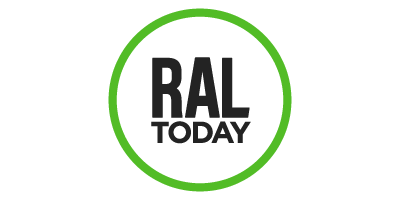We recently asked you to send us your questions about buying a home for the first time – and now we have answers, thanks to local real estate agent Veronica Saccoh. 🏡
Q: I know the rule of thumb is 10-20% down, but does that hold up these days?
A: The rule of thumb has always been and still is 20% down. Think about it as though the bank is asking you to have some “skin in the game” if the bank is going to foot most of the loan. With 20% down, the bank will not charge a PMI (Private Mortgage Insurance) or the charge you pay for not putting down 20% of the loan.
Nevertheless, these days, you do not need to put 20% down in order to own a home. Most banks now offer conventional loans for as low as 3% down. Yes, you may have to pay PMI, but it is a minimal charge when you compare it to being able to afford a home now, especially with interest rates being at a historic low in our lifetime.
Q: Where can I find loan information specific to first-time buyers?
A: Most local and national banks have programs for first-time homebuyers. The key is to ask for it.
Also ask about niche programs for teachers, police officers, public servants, medical residents, veterans, etc. Depending on your profession, you could qualify for a great program.
In addition, the following are well-known programs that first-time homebuyers can benefit from:
FHA (Best for Limited cash, high consumer debt borrowers)
- Lower minimum down payment and credit score
- Down payment can be a gift or a loan from a family member, employer, charitable organization, government agency, close friend…
- Disaster victims eligible for 100% financing
VA (Best for those enlisted or have served in the military)
- Zero down payment
- Zero mortgage premium insurance
USDA (Best for those purchasing a home in zones designated as rural areas)
- Zero downpayment
- Lower credit score requirement
Q: What are the pros and cons of purchasing a detached home vs. a townhome? I feel like a townhome may still feel like living in an apartment.
A: There are significant pros and cons associated with owning either a detached home or a townhome. Your final decision might just be a matter of where you are in life and what is most important to you.
Pros of single-family homes:
- More square footage
- More architectural options/details
- More yard space
- Privacy and separation from noise/nosy neighbors
- Freedom to do what you want within your home, to your home and on your property (for the most part)
Cons of single-family homes:
- Higher mortgage
- Owners pay for interior + exterior repairs and maintenance.
- Responsible for seasonal maintenance (like landscaping and snow removal) and services, such as trash disposal.
Pros of a townhome:
- Lower mortgage
- Lower utility bills
- Low maintenance
- Amenities like gyms, pools and clubhouses
Cons of a townhome:
- Higher homeowner associations fees
- Limited to one/few architectural design(s)
- Less privacy
- Limited freedoms to what you want to do on your property
Q: With homes selling so quickly, what are the benefits of having a real estate agent or broker?
A: This is exactly the time when you need a great real estate agent who will not only find you the home of your dreams but will also educate you, guide you, and guard + protect your interests from the beginning until the end.
A great agent will:
- Personal consultation to know buyer’s needs
- Help you find a suitable lender + explore financial options that best fit your unique situation
- Help you find the home of your dreams
- Preparing and presenting an acceptable offer
- Negotiate the terms of the deal on your behalf
- Help make professional connections for inspection, home insurance, closing attorneys, etc.
- Strategically moving the deal forward until the keys are in your hands
Q: How do I realistically come up with a plan to start saving and figuring out what I can afford?
A: For a realistic plan to begin saving, I would say take it one step at a time. Look at your expenditures, and cut out some less important things. For example, you can cut down eating out a couple of times a week and put the extra money toward your savings. Pick a plan and stick to it.
As for “what you can afford,” your buying power/limit is determined by the bank. You want to start at your local bank and then “shop around” at other banks. Make sure to tell them that you are a first-time home buyer and would like to know how much home you can afford at this time and what specific programs they have specifically to fit your needs.
For information on becoming a first-time homebuyer, Veronica hosts a virtual workshop on the first Saturday of every month to answer all of your questions. On Feb. 6, 2021, the webinar will be solely dedicated to answering your financial questions with the help of a veteran local banker. Interested? Register here. Ⓟ











